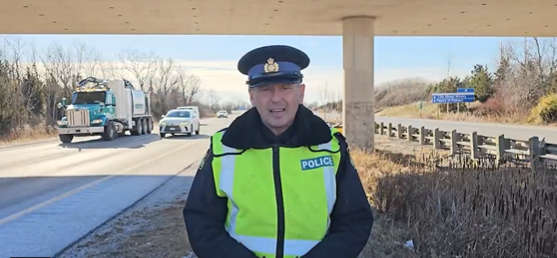Scorching temperatures are descending on parts of Ontario this week.
Environment Canada has issued a heat warning for an area that includes Toronto and Ottawa, stretching west to Sault Ste. Marie (SOO’ SAINT Marie) and as far north as Fort Albany.
Niagara will see temperatures soar up to 35 degrees Celsius, starting today.
Environment Canada warns the humidity will make it feel more like 40 to 45 degrees in some areas.
RISK OF HEAT STROKE
The high temperatures will pose a risk of heat stroke, along with deteriorating air conditions, ECCC said in its warning.
The national weather agency is advising older adults, infants, young children, pregnant people, and those with disabilities to take extra care to mitigate the risks and watch for signs of heat illness. These include swelling, rash, cramps, fainting, heat exhaustion, heat stroke and the worsening of some health conditions.
If you believe you or someone you know has a high body temperature, has stopped sweating and/or becomes confused or unconscious, ECCC advises calling 911.
While waiting for help, the agency says to move the person to a cool place, apply a cool compress to large areas of their skin, and fan the person as much as possible.
Hot and humid air can also bring deteriorating air quality and can result in the air quality health index approaching the high risk category.
It’s expected many municipalities will open cooling centres to give people a break from the heat. Check with your local town, village or city to see where you can find respite from the humidity.
TIPS FOR RESIDENTS TO STAY SAFE DURING THE UPCOMING HEAT WAVE:
- Stay hydrated. Drink water regularly, even when not thirsty.
- Plan outdoor activities for cooler times of the day.
- Seek shade or use an umbrella to avoid direct sun exposure.
- Use a fan to circulate cool air indoors when the temperature is below 35 degrees Celsius.
- Keep blinds or curtains closed during the day to block out the sun.
- Wear lightweight, loose-fitting clothing and wide-brimmed hats outdoors.
- Take cool showers or use cool, wet towels to cool down.
- In an emergency, always call 911.
Please continue to monitor alerts and forecasts issued by Environment Canada.


 Optimism Fading for Beluga Whales
Optimism Fading for Beluga Whales
 Apartments Approved for Queenston Street
Apartments Approved for Queenston Street
 3 Arrested After NRP Find Cocaine
3 Arrested After NRP Find Cocaine
 Police Looking for 2 Arsonists
Police Looking for 2 Arsonists
 Niagara Health Funding Gone Up: MPP
Niagara Health Funding Gone Up: MPP
 Wainfleet Taxes Rise Next Year
Wainfleet Taxes Rise Next Year
 OPP Appeal for Drivers to Come Forward
OPP Appeal for Drivers to Come Forward
 Police Looking for Missing Teen
Police Looking for Missing Teen